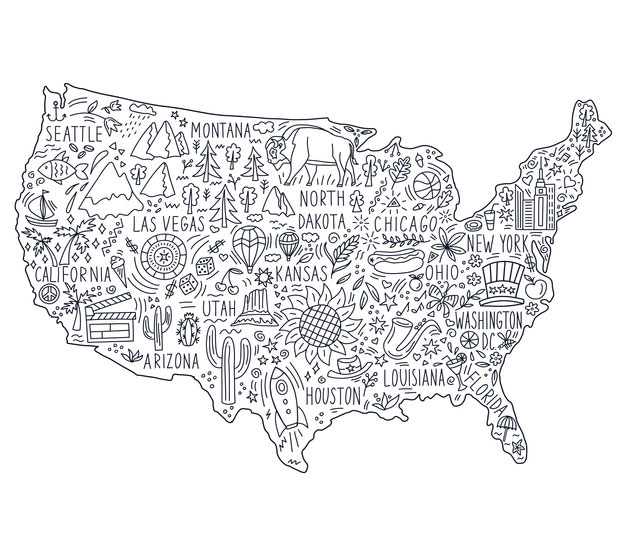Understanding Social Worker Salaries in 2026
According to the Bureau of Labor Statistics (BLS) May 2024 data, the national median salary for all social workers is $61,330 per year. However, this figure varies significantly based on location, specialization, education level, and experience. Social work salaries range from $41,580 at the 10th percentile to $99,500 at the 90th percentile nationally.
This comprehensive guide provides the most current 2024 BLS salary data for social workers across all 50 states, broken down by specialization and including cost of living considerations to help you make informed career decisions.
Social Worker Salary by State: Quick Navigation
National Social Worker Salary Overview 2024
| Social Work Category | Employment | Median Salary | 10th Percentile | 90th Percentile |
|---|---|---|---|---|
| All Social Workers | 759,740 | $61,330 | $41,580 | $99,500 |
| Child, Family & School | 382,960 | $58,570 | $40,580 | $94,030 |
| Healthcare | 204,360 | $65,580 | $42,930 | $100,250 |
| Mental Health & Substance Abuse | 157,350 | $59,200 | $38,650 | $96,130 |
These national figures represent social workers at all education levels, from BSW holders to those with MSW degrees and doctoral qualifications.
Top 10 Highest-Paying States for Social Workers (2024)
| Rank | State | Median Annual Salary | Cost of Living Index | Adjusted Salary |
|---|---|---|---|---|
| 1 | District of Columbia | $82,540 | 152.1 | $54,271 |
| 2 | Hawaii | $79,920 | 179.0 | $44,648 |
| 3 | California | $78,810 | 142.2 | $55,443 |
| 4 | Connecticut | $75,670 | 107.8 | $70,176 |
| 5 | New Jersey | $74,950 | 114.1 | $65,697 |
| 6 | Rhode Island | $73,280 | 110.5 | $66,308 |
| 7 | Oregon | $72,090 | 113.2 | $63,692 |
| 8 | Washington | $71,540 | 115.7 | $61,842 |
| 9 | New York | $71,390 | 125.1 | $57,074 |
| 10 | Massachusetts | $70,240 | 121.6 | $57,763 |
While these states offer the highest nominal salaries, it’s important to consider cost of living when evaluating compensation. Connecticut, for example, offers the best purchasing power when salary is adjusted for living costs.
Social Worker Salaries by Specialization
Your chosen specialization significantly impacts earning potential. Healthcare social workers typically earn more than those in school settings, while licensed clinical social workers (LCSWs) command the highest salaries due to their advanced training and ability to provide therapy services.
Healthcare Social Workers
Healthcare social workers assist patients and families navigate medical systems, coordinate care, and access resources. With a median salary of $65,580 nationally, they’re among the highest-paid social work professionals. States like California, Connecticut, and Oregon offer particularly strong opportunities in hospital and medical settings.
Mental Health & Substance Abuse Social Workers
These specialists work with individuals facing addiction, mental health challenges, and behavioral issues. The growing awareness of mental health importance has increased demand, with median salaries reaching $59,200 nationally. States with robust mental health infrastructure like Massachusetts and New York offer premium compensation.
Child, Family & School Social Workers
The largest employment category, these professionals work in schools, child welfare agencies, and family service organizations. While median salaries ($58,570) are slightly lower than healthcare roles, job availability is excellent, with over 380,000 positions nationwide.

Complete State-by-State Social Worker Salary Guide
Each state’s salary data reflects May 2024 BLS statistics for child, family, and school social workers. These figures represent professionals at various education and experience levels. State-specific licensing requirements and career opportunities are included to provide comprehensive career planning information.
Alabama
Median Annual Salary: $40,450 | Range: $32,910 – $61,600
Alabama offers unique opportunities through the Office of Deaf Services and Alabama Department of Public Health. The state’s three-tier licensing system (LBSW, LMSW, LCSW) provides clear career progression paths. While salaries are below national average, Alabama’s low cost of living (87.5 index) makes these wages competitive.
Alaska
Median Annual Salary: $50,170 | Range: $38,090 – $89,210
Alaska’s straightforward LBSW , LMSW, and LCSW licensing structure combined with higher salaries compensates for the state’s remote locations and higher living costs. Rural social workers may qualify for additional stipends and loan forgiveness programs.
Arizona
Median Annual Salary: $45,780 | Range: $36,860 – $68,120
The Arizona Commerce Authority projects 50% growth in healthcare and social assistance by 2030, indicating excellent job stability. Phoenix and Tucson metropolitan areas offer the highest concentration of positions and competitive salaries.
Arkansas
Median Annual Salary: $38,790 | Range: $31,500 – $55,380
Arkansas requires all practicing social workers to be licensed, ensuring professional standards. The state’s straightforward three-tiered system and low cost of living (89.0 index) make it accessible for new graduates entering the field.
California
Median Annual Salary: $72,810 | Range: $48,760 – $103,730
California employs more social workers than any other state (approximately 47,000) and offers the third-highest median salary. Notably, most California social workers don’t require licenses to practice, though clinical positions still require LCSW credentials. The San Francisco Bay Area and Los Angeles metropolitan regions offer the highest salaries.
Colorado
Median Annual Salary: $56,950 | Range: $42,620 – $77,470
Colorado’s 2020 Mental Health Practice Act added new licensing options for MSW graduates , expanding career opportunities. Denver and Boulder offer particularly strong job markets with salaries exceeding state averages.
Connecticut
Median Annual Salary: $67,930 | Range: $47,740 – $93,760
Connecticut offers excellent salaries but requires minimum Master’s degrees for licensure (LMSW and LCSW only). The state’s proximity to major metropolitan areas and strong healthcare infrastructure supports higher compensation.
Delaware
Median Annual Salary: $49,210 | Range: $38,070 – $66,320
Delaware law requires all social workers to be licensed, with exemptions for clergy and certain human services workers. The state’s small size allows for easy networking and professional development opportunities.
District of Columbia
Median Annual Salary: $75,090 | Range: $52,070 – $99,230
DC offers among the highest social worker salaries nationally. All social workers must complete 40 hours of continuing education including mandatory LGBTQ and public health training, reflecting the district’s commitment to comprehensive service delivery.
Florida
Median Annual Salary: $46,690 | Range: $36,570 – $66,810
Florida regulates CMSWs (Certified Master Social Workers) and clinical social workers, also offering licenses for assistants and interns to support career development. Major metropolitan areas like Miami, Tampa, and Orlando offer higher salaries than state averages.

Georgia
Median Annual Salary: $44,840 | Range: $35,680 – $63,320
The Georgia Board licenses clinical and Master’s-level social workers but doesn’t offer reciprocity for out-of-state professionals. Atlanta metropolitan area offers salaries 15-20% above state average.
Hawaii
Median Annual Salary: $68,830 | Range: $51,880 – $89,540
Hawaii’s higher salaries help offset the nation’s highest cost of living. The Hawaii NASW chapter provides extensive networking, support events, and scholarship opportunities for professional development.
Idaho
Median Annual Salary: $47,270 | Range: $36,870 – $66,290
Idaho licenses bachelor’s, Master’s, and clinical social workers, providing opportunities at every education level. Students in recognized programs can work under supervision without licenses, facilitating practical experience.
Illinois
Median Annual Salary: $55,020 | Range: $41,870 – $75,120
Illinois offers LSW and LCSW licenses. As of January 2022, new LSWs don’t need to pass licensure exams (Public Act 102-0326), reducing barriers to entry. Chicago offers significantly higher salaries than rural areas.
Indiana
Median Annual Salary: $44,040 | Range: $35,320 – $62,540
Indiana provides license reciprocity for out-of-state social workers, though all must pass the Indiana jurisprudence exam. Indianapolis and Fort Wayne offer the strongest job markets.
Iowa
Median Annual Salary: $54,840 | Range: $40,580 – $73,970
Iowa’s unique LISW (Licensed Independent Social Worker) designation allows provision of clinical and non-clinical services with appropriate education. This flexibility creates diverse career opportunities.
Kansas
Median Annual Salary: $49,010 | Range: $37,680 – $66,850
Kansas pioneered social work licensing in 1976, establishing the three-tiered LBSW/LMSW/LSCSW system many states use today. The state offers stable employment with growing healthcare sectors.
Kentucky
Median Annual Salary: $42,350 | Range: $33,600 – $60,220
Kentucky projects 2,000 new social work positions over the next five years. The state’s LSW, CSW, and LCSW licensing structure provides clear advancement pathways.
Louisiana
Median Annual Salary: $44,220 | Range: $33,940 – $62,680
Louisiana offers unique RSW (Registered Social Worker) and LCSW-BACS (Board Approved Clinical Supervisor) licenses, creating specialized career paths for new graduates and those seeking administrative roles.
Maine
Median Annual Salary: $51,770 | Range: $41,090 – $68,380
Maine’s 2021 legislation facilitates licensure for out-of-state professionals. Combined with competitive salaries and beautiful settings, Maine attracts career-minded social workers seeking work-life balance.
Maryland
Median Annual Salary: $60,200 | Range: $43,960 – $84,390
Maryland is developing an interstate licensure compact to facilitate professional mobility. The state’s proximity to DC and strong healthcare systems support higher salaries.
Massachusetts
Median Annual Salary: $62,360 | Range: $44,370 – $87,090
Massachusetts’ unique LSWA (Licensed Social Work Associate) classification helps those with associate degrees enter the field. Boston area salaries significantly exceed state averages.
Michigan
Median Annual Salary: $52,670 | Range: $40,770 – $70,870
Michigan’s RSST (Registered Social Services Technician) designation creates opportunities for those with technical skills. Detroit, Grand Rapids, and Ann Arbor offer the highest salaries.
Minnesota
Median Annual Salary: $58,020 | Range: $43,740 – $78,570
Minnesota’s four-tiered licensing benefits specialists while making exemptions for tribal and county employees. The Twin Cities metropolitan area offers particularly strong opportunities.
Mississippi
Median Annual Salary: $35,580 | Range: $29,630 – $53,580
While offering lower salaries, Mississippi’s low cost of living (84.8 index) extends purchasing power. All licensed social workers must be 21 or older.
Missouri
Median Annual Salary: $43,450 | Range: $33,910 – $62,140
Missouri offers streamlined licensing for out-of-state professionals with one year experience. St. Louis and Kansas City provide the best salary opportunities.
Montana
Median Annual Salary: $48,930 | Range: $36,510 – $66,740
Montana’s 2019 expansion from LCSW-only to three-tiered licensing opened opportunities for bachelor’s and Master’s level practitioners.
Nebraska
Median Annual Salary: $48,800 | Range: $36,520 – $68,060
Nebraska doesn’t require certification for social work activities, but certification is needed to use the “Social Worker” title. No exam required for CSW certification.
Nevada
Median Annual Salary: $61,140 | Range: $44,610 – $82,340
Nevada’s four-tier licensing (LSW, LMSW, LCSW, LISW) provides diverse career paths. Las Vegas and Reno offer salaries above state averages.
New Hampshire
Median Annual Salary: $54,080 | Range: $41,750 – $72,410
New Hampshire regulates clinical and school social workers. School licenses accept MSW degrees or equivalent experience per state regulations.
New Jersey
Median Annual Salary: $68,170 | Range: $48,960 – $94,510
New Jersey offers among the nation’s highest social worker salaries. All practitioners must hold one of three available licenses, with exceptions for students and certain civil servants.
New Mexico
Median Annual Salary: $52,940 | Range: $39,080 – $73,680
New Mexico’s LISW designation equals LCSW in other states. Albuquerque and Santa Fe offer the strongest employment markets.
New York
Median Annual Salary: $66,390 | Range: $47,060 – $89,910
New York requires LMSW or LCSW licenses (both requiring Master’s degrees) plus child abuse reporting training. NYC salaries significantly exceed upstate regions.

North Carolina
Median Annual Salary: $48,420 | Range: $37,870 – $65,890
North Carolina’s four-tiered system includes the unique CSWM (Certified Social Work Manager) for Master’s/Doctorate holders seeking case management roles.
North Dakota
Median Annual Salary: $54,690 | Range: $41,670 – $75,070
All North Dakota licenses require ASWB exams. Only LSCWs may practice privately. Oil region communities often offer signing bonuses.
Ohio
Median Annual Salary: $48,050 | Range: $37,250 – $66,560
Ohio offers SWA (Social Work Assistant) and SWT (Social Work Trainee) licenses for entry-level workers, plus LISW supervision licenses for administrators.
Oklahoma
Median Annual Salary: $47,070 | Range: $35,510 – $66,960
Oklahoma’s 1980 Social Worker Licensing Act requires all practitioners, including administrators, to be licensed. Oklahoma City and Tulsa offer highest salaries.
Oregon
Median Annual Salary: $60,320 | Range: $43,620 – $82,610
Oregon’s licensing mirrors educational stages with three clinical and two non-clinical licenses. Portland metropolitan area offers premium salaries.
Pennsylvania
Median Annual Salary: $49,520 | Range: $38,550 – $68,580
Pennsylvania offers three license types based on education level. Philadelphia and Pittsburgh provide the strongest job markets.
Rhode Island
Median Annual Salary: $64,530 | Range: $47,900 – $86,490
Rhode Island only requires clinical social worker licensure. Until 2025, LCSWs don’t need ASWB clinical exams for licensing.
South Carolina
Median Annual Salary: $45,110 | Range: $35,090 – $63,340
South Carolina distinguishes between LISW-CP (clinical) and LISW-AP (non-clinical) practitioners, with separate BSW and MSW licenses.
South Dakota
Median Annual Salary: $53,790 | Range: $40,520 – $70,890
South Dakota’s Social Work Associate license accepts non-social work bachelor’s degrees or social work associate degrees, providing flexible entry paths.
Tennessee
Median Annual Salary: $46,920 | Range: $36,310 – $65,870
Tennessee requires ASWB exams for all four license types. Nashville and Memphis offer salaries above state averages.
Texas
Median Annual Salary: $52,280 | Range: $39,520 – $73,430
Texas projects 30% social assistance sector growth through 2030. Major cities like Houston, Dallas, Austin, and San Antonio offer premium salaries.

Utah
Median Annual Salary: $48,540 | Range: $37,330 – $66,450
Utah’s SSW, CSW, and LCSW structure includes certified social service worker intern options for pre-exam experience building.
Vermont
Median Annual Salary: $54,460 | Range: $42,410 – $72,610
Entry-level non-clinical workers don’t need licenses, but advanced practitioners require LMSW or LICSW credentials (both requiring MSW degrees).
Virginia
Median Annual Salary: $56,550 | Range: $42,100 – $77,090
Virginia’s five-level licensing requires annual renewal (unique among states). Northern Virginia salaries exceed state averages due to DC proximity.
Washington
Median Annual Salary: $65,170 | Range: $48,940 – $86,570
All four Washington licenses require Master’s/Doctorate degrees and ASWB exams. Seattle area offers particularly high salaries.
West Virginia
Median Annual Salary: $45,470 | Range: $35,260 – $65,730
West Virginia’s provisional licenses for those without formal social work education create unique entry paths for career changers.
Wisconsin
Median Annual Salary: $50,470 | Range: $38,450 – $69,400
Wisconsin offers four licenses from Certified Social Worker to Advanced Certified Independent Worker, all requiring appropriate ASWB exams.
Wyoming
Median Annual Salary: $48,900 | Range: $37,330 – $67,220
Wyoming’s PCSW (Provisional Clinical Social Worker) license helps regulate supervision standards for those progressing toward clinical practice.
Key Factors Affecting Social Worker Salaries
Education Level
Education significantly impacts earning potential. While BSW graduates can enter the field immediately, those with MSW degrees typically earn 20-30% more. Advanced degrees like DSW or PhD can lead to administrative or academic positions with even higher salaries.
Licensure Status
Licensed clinical social workers (LCSWs) command the highest salaries, often 25-40% more than non-clinical practitioners. The ability to provide therapy services and work in private practice significantly increases earning potential.
Years of Experience
Entry-level social workers typically start at the 25th percentile of salary ranges. With 5-10 years experience, most reach median salaries. Senior practitioners with 15+ years often earn at the 75th percentile or higher.
Work Setting
Healthcare facilities, especially hospitals, typically offer the highest salaries. Government positions provide strong benefits packages. Non-profit organizations may offer lower salaries but provide loan forgiveness opportunities and meaningful work experiences.
Geographic Location
Urban areas generally offer higher salaries than rural regions, though cost of living differences can offset nominal wage advantages. States with strong social safety nets typically provide better compensation.
Career Progression and Salary Growth
Social work offers clear career advancement pathways with corresponding salary increases:
Entry Level (0-2 years)
- BSW holders: $35,000-45,000
- MSW holders: $45,000-55,000
- Focus on gaining supervised experience
- Consider online programs for advancement
Mid-Career (3-10 years)
- Licensed practitioners: $50,000-70,000
- Clinical specialists: $60,000-80,000
- Pursue specialized certifications
- Consider doctoral programs for advancement
Senior Level (10+ years)
- Program directors: $70,000-90,000
- Clinical supervisors: $75,000-95,000
- Private practice: $80,000-120,000+
Executive Positions
- Agency directors: $90,000-130,000
- Policy directors: $100,000-150,000
- Healthcare administrators: $110,000-160,000
Frequently Asked Questions
What is the average starting salary for social workers?
Entry-level social workers with a BSW typically start at $35,000-45,000 annually, while those with an MSW begin at $45,000-55,000. Starting salaries vary significantly by state, with positions in California, New York, and Connecticut offering 20-30% above national averages.
Which social work specialization pays the most?
Healthcare social workers earn the highest median salary at $65,580 nationally, followed by mental health and substance abuse social workers at $59,200. Licensed clinical social workers in private practice can earn $80,000-120,000 or more, especially in metropolitan areas.
Do social workers with Master’s degrees earn significantly more?
Yes, MSW holders typically earn 20-30% more than BSW graduates. The salary difference becomes more pronounced with experience. MSW degrees are required for clinical licensure, which opens higher-paying positions and private practice opportunities.
How does cost of living affect social worker salaries?
Cost of living dramatically impacts purchasing power. For example, a $75,000 salary in San Francisco equals approximately $45,000 in purchasing power, while $50,000 in Alabama provides similar lifestyle quality due to lower living costs. Always consider adjusted salaries when evaluating positions.
What are the fastest-growing areas in social work?
Healthcare and mental health social work show the strongest growth, with the BLS projecting 11% growth through 2033. Substance abuse counseling, gerontological social work, and telehealth services offer particularly strong opportunities for salary growth and job security.
Can social workers earn six-figure salaries?
Yes, experienced social workers can earn $100,000+ through various paths: clinical private practice, healthcare administration, executive director positions, consulting, or specialized roles in high-cost metropolitan areas. The 90th percentile of social workers nationally earns $99,500 or more.
How do I maximize my earning potential as a social worker?
To maximize earnings: pursue advanced degrees (MSW or doctorate), obtain clinical licensure (LCSW), gain specialized certifications, consider healthcare or administrative roles, relocate to higher-paying states, develop niche expertise, and consider private practice or consulting after gaining experience.
Are social worker salaries keeping pace with inflation?
Social worker salaries have generally kept pace with inflation, with median wages increasing approximately 15% over the past five years. However, growth varies by region and specialization, with healthcare and clinical roles seeing stronger increases than education-based positions.
Planning Your Social Work Career Path
Understanding salary expectations is crucial for career planning, but remember that social work offers rewards beyond compensation. The profession provides meaningful work, job security, diverse career paths, and opportunities to make real differences in people’s lives.
Whether you’re considering starting with a BSW , advancing to an MSW , or exploring online degree options , use this salary data to make informed decisions about your education and career trajectory.
For the most current information about social work programs in your area and licensure requirements, consult your state’s social work board and explore CSWE-accredited programs that align with your career goals and salary expectations.
2023 US Bureau of Labor Statistics salary and employment figures for Child, Family, and School Social Workers, Healthcare Social Workers, Mental Health and Substance Abuse Social Workers, and Social Workers, All other, reflect national data, not school-specific information. Conditions in your area may vary. Data accessed December 2024.














